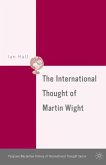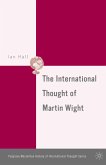
Broschiertes Buch
1st ed. 2006
23. Oktober 2006
Palgrave Macmillan / Palgrave Macmillan US / Springer Palgrave Macmillan
978-1-349-53117-2
| eBook, PDF | 40,95 € |

eBook, PDF
3. September 2006
Palgrave Macmillan US
13,99 €
inkl. MwSt. und vom Verlag festgesetzt.
Sofort per Download lieferbar
Ähnlichkeitssuche: Fact®Finder von OMIKRON
